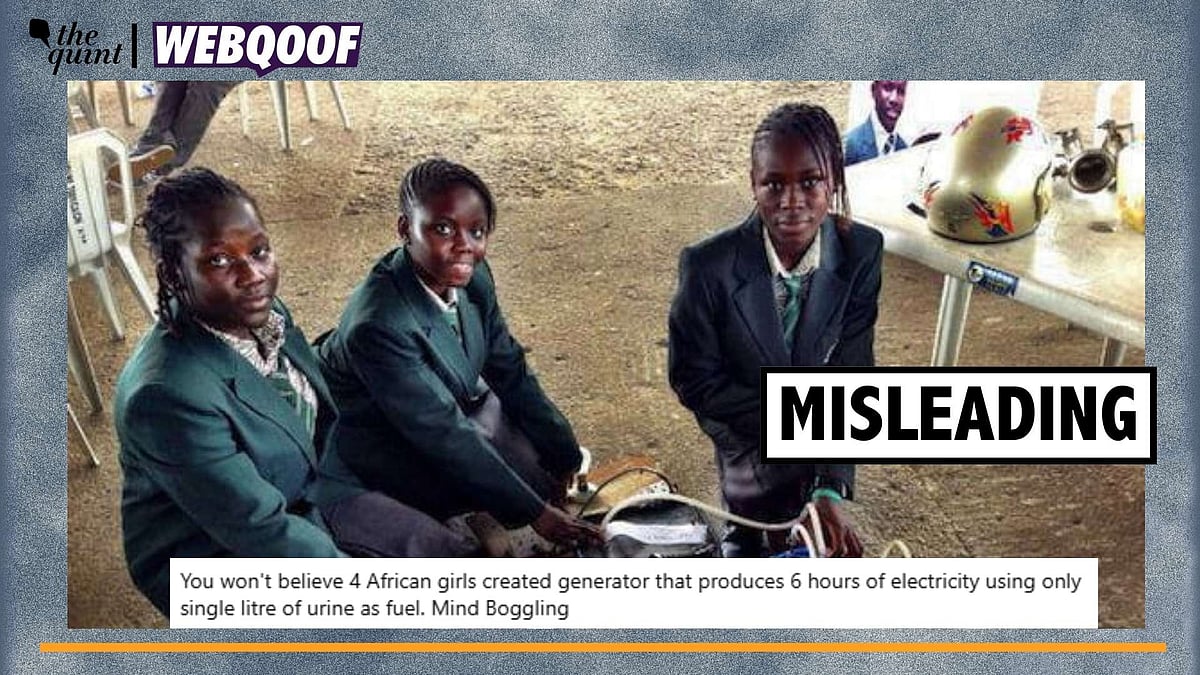Have Four Girls in Africa Created Urine-Powered Generator? A Fact-Check
We found that the invention dated back to 2012 and was not new.

advertisement
A post is doing the rounds on social media platforms with a claim that four girls from Africa have recently created a generator that produces six hours of electricity using a litre of urine as fuel.
An archive of the post can be found here.
(Source: Facebook/Screenshot)
What are the facts?: The project is not new and was created in 2012 by four girls in Africa.
Several reports pointed out experts saying that it takes more energy to extract hydrogen from urine than one can end up getting in return as electricity. This makes the large-scale use of the generator unfeasible.
This meant that the viral claim lacked proper context.
How did we find that out?: With the help of a keyword search on Google, we found a news report published by Forbes that talked about four girls from Africa creating an urine-power generator that could be used to get six hours of electricity.
The girls were identified as Faleke Oluwatoyin, Akindele Abiola, Duro-Aina Adebola, and Faleke Oluwatoyin, who displayed their invention at the Maker Faire Africa in Lagos, Nigeria.
A professor of chemical and biomolecular engineering at Ohio University named Gerardine Botte said "it takes more energy to extract hydrogen from urine than you end up getting in return as electricity."
She added that the energy equation becomes more skewed by the generator's (used in the girls' project) inefficiency.
Botte further praised the girls and said that they deserved a lot of credit.
The report was published in November 2012.
(Source: Forbes/Screenshot)
More details: Team WebQoof further found a video uploaded on an unverified YouTube channel named 'Abayomi Adisa'.
It was shared on 24 January 2015 with a title that said, "URINE POWERED GENERATOR IN NIGERIA."
We noticed that the generator was mostly being used to power bulbs in the video and did not find any instance of heavy appliances being powered.
Other sources: A NBC report published in 2012 further questioned the lack of details around the generator.
It said that the Maker Faire Africa website did not carry details on how many watts are generated or what the generator could power for six hours.
It was published on 9 November 2012.
(Source: NBC/Screenshot)
Conclusion: It is clear that the viral claim lacks proper context about the project being old and other details about it.
(Not convinced of a post or information you came across online and want it verified? Send us the details on WhatsApp at 9540511818 , or e-mail it to us at webqoof@thequint.com and we'll fact-check it for you. You can also read all our fact-checked stories here.)